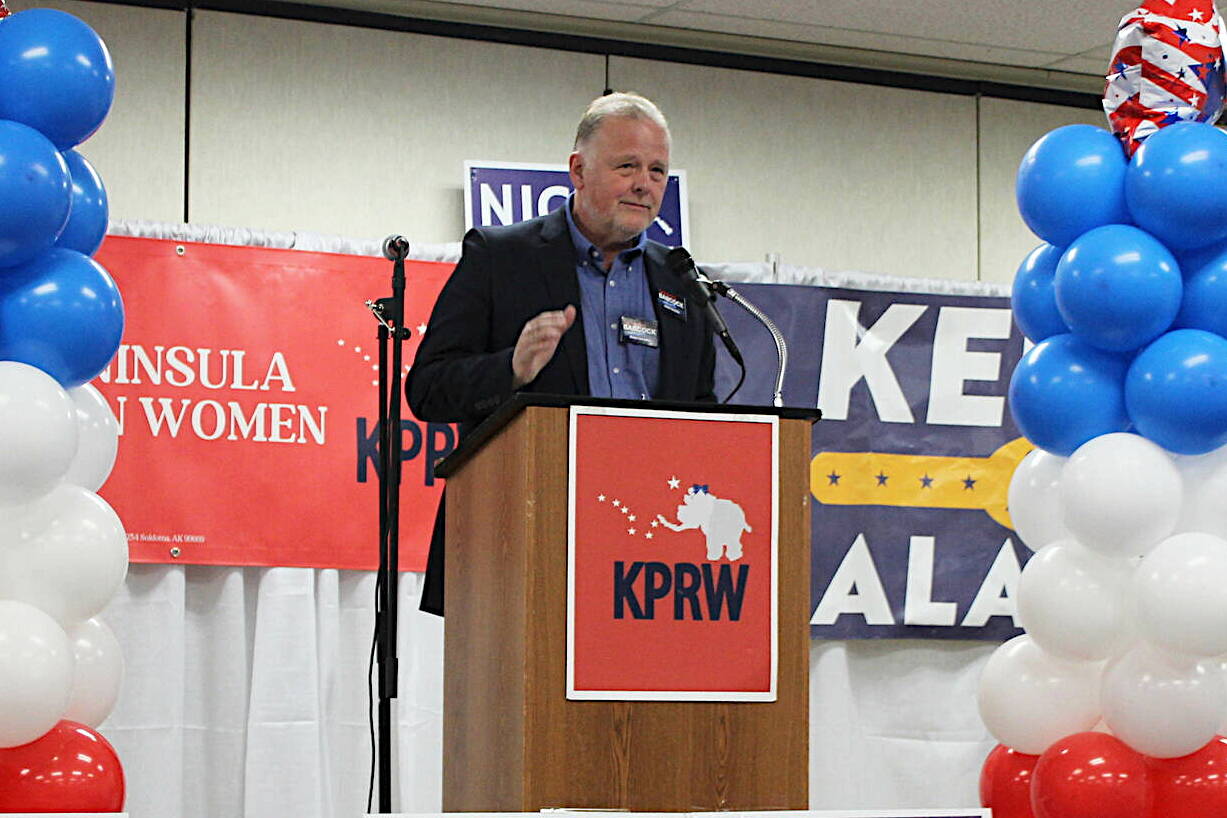Tuckerman Babcock, among Alaska’s most controversial political figures, was appointed Wednesday to the University of Alaska’s Board of Regents by Gov. Mike Dunleavy. The move comes after the Alaska State Legislature rejected the also-controversial appointment of Bethany Marcum earlier this month.
The appointment also occurred one day after Jeremy Cubas, Dunleavy’s adviser on “pro-family” policies, resigned when a news investigation revealed Cubas defended Adolf Hitler’s views on “living homogeneously,” boasted about using racial slurs daily and said people should respond violently to aggressive transgender activists.
Babcock, a top Republican official for decades in the state, is notorious for demanding about 800 at-will state employee sign loyalty pledges to Dunleavy while serving as his chief of staff beginning in December of 2018. A federal judge ruled in 2021 Babcock and Dunleavy acted illegally with the demand and subsequent firings.
Marcum’s appointment was opposed by lawmakers and university officials largely due to her support of Dunleavy’s first budget that cut the university’s funding by 40%. The 29-31 vote against her by the Legislature made her the only nominee rejected for dozens of positions considered this session.
Babcock, as Dunleavy’s first chief of staff, was among those advocating for the governor’s deep budget cuts to the university and other areas of state spending.
A prediction Babcock would receive a recess appointment to the UA board — meaning he can serve at least until the Legislature gavels in again and votes on confirming him, likely next spring — if Marcum was rejected was made by the Alaska Landmine in March. A spokesperson for Dunleavy declined to comment on the Landmine’s report at the time.
Dunleavy could have made Babcock a recess appointment to the Board of Regents before its meetings late last week, since the Legislature adjourned its regular proceedings for the year May 18. The board’s next committee and regular meetings are scheduled Aug. 30-31.
Inquiries by the Empire to the governor’s office about the motives and timing of Babcock’s appointment after it was announced at about 5 p.m. Wednesday were not immediately returned.
In a press release, the governor’s office noted Babcock served as chairman of the Alaska Republic Party before becoming Dunleavy’s first chief of staff. Babcock was also executive director of the state reapportionment board during the early 1990s, was a political and campaign strategist for numerous major state politicians, and was assistant manager of Matanuska Electric Association (MEA).
Babcock, a Soldotna resident, also unsuccessfully ran for a state Senate seat in his home district last year.
“Tuckerman’s experience serving in numerous statewide government positions and ten years in business management makes him a great fit for the University of Alaska’s Board of Regents,” Dunleavy said in a prepared statement. “I am grateful for his continued service and commitment to the State of Alaska. I am confident that Tuckerman’s expert knowledge of public service and leadership will continue to help Alaska for the better.”
Babcock, in a brief interview with the Anchorage Daily News on Wednesday evening, said he’s “not charging in with any particular agenda.”
“I am looking forward to reviewing the budget and getting a good grasp of where all the different sources of income are,” he told the Anchorage newspaper.
Some current and former lawmakers suggested Babcock isn’t likely to keep the job beyond the next time the Legislature votes to confirm nominees.
“I don’t think he’s going to be confirmed, so I guess it’s kind of a temporary appointment,” Rep. Zack Fields, an Anchorage Democrat, told the Anchorage Daily News. “Fundamentally, he tried to destroy the university and doesn’t have a record of supporting it.”
• Contact Mark Sabbatini at mark.sabbatini@juneauempire.com or (907) 957-2306.

